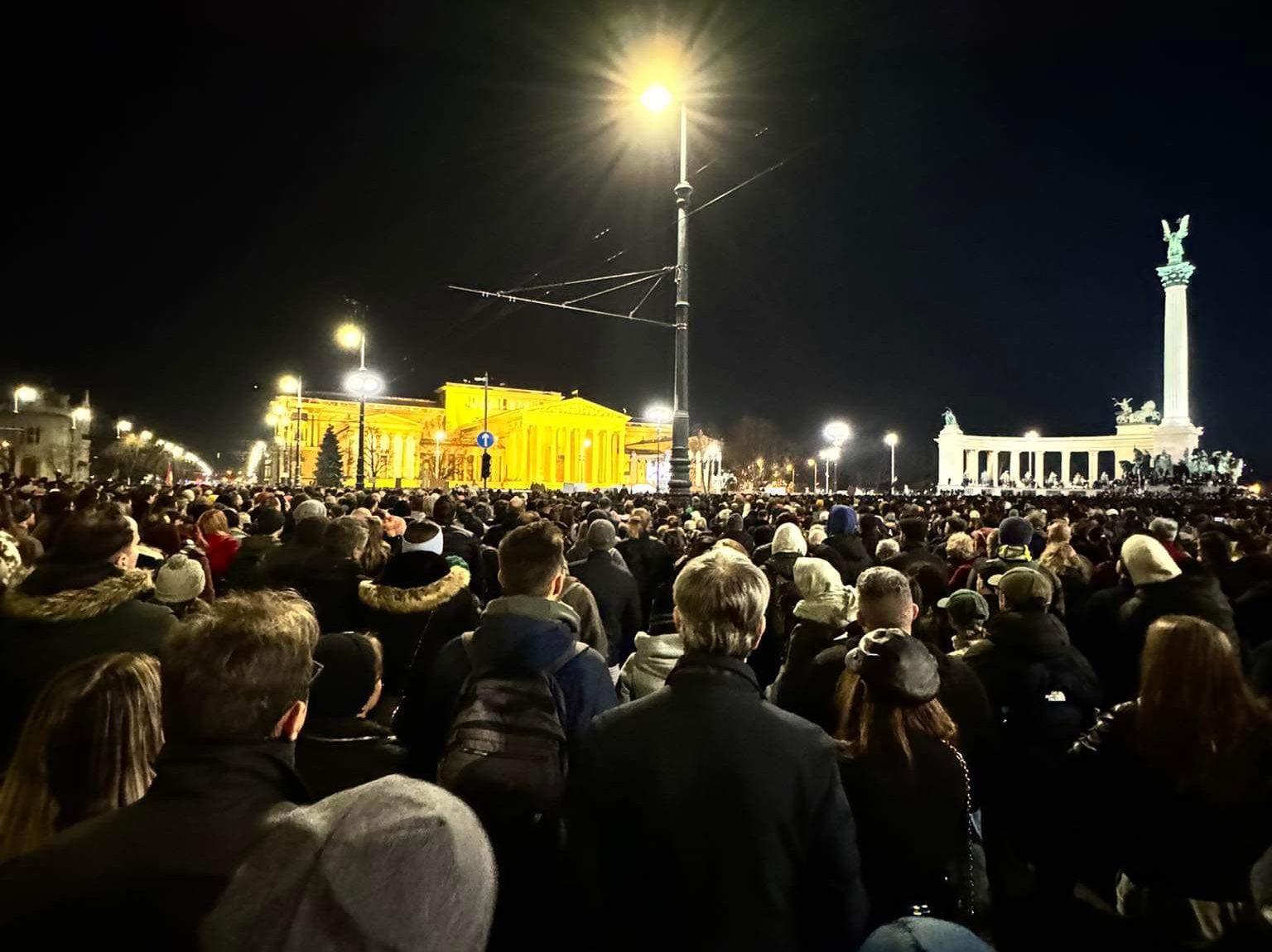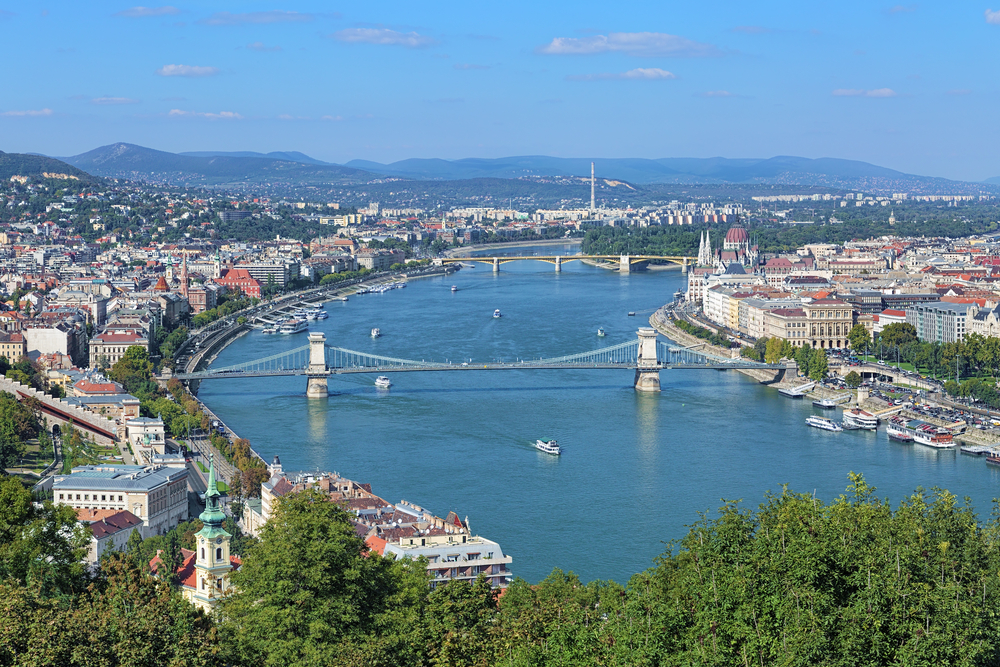BKV: out of order?

As the New Year arrived, the Budapest Transport Company (BKV) and the Budapest Transport Authority (BKK) made ‘new’ promises. In fact some of these plans aren’t new at all, but actually several years old and still in preparatory phase due to a lack of funds, political infighting or simple bureaucracy.
The New Year brought elevated ticket prices but also some promising transportation projects around the city. A fair number of these ‘new’ projects are, however, already several years old and we’re not only talking about the continuously delayed opening date of Metro 4.
Delayed projects
From projects co-financed by the EU, the reconstruction of the two priority circular tramlines, numbers 1 and 3, might finally start this year. The conditional tense here is absolutely legitimate as construction should have been started last summer, however, the procurement details have still not been published. The reconstruction aims at reducing environmental impact, increasing speed of travel and accessibility to stations. According to the communications department of BKK, the preparatory work will begin this year on the extension of tramline 1 through Rákóczi (Lágymányosi) bridge to Fehérvári út.
But the Budai Fonódó Villamoshálózat project to merge tramlines is still in the planning phase thanks to disputes with district 2, despite the fact that it should already be underway, says Lajos Dorner, president of the Urban and Suburban Transport Association (VEKE). The so-called FUTÁR (traffic control and passenger information) project was supposed to be ready by last March, yet is still very far from being finished.
Not directly related to public transport, the expansion of the M0 circular highway to a three-lane motorway in each direction is undergoing an at least one and a half year delay.
Major projects in the capital are similarly behind schedule, due to bureaucracy, legal zigzags and, frankly, incompetence at every level of the process. It seems that once projects have slipped, they will be timed to the elections next year, VEKE said.
Pre-owned new vehicles
The aging transport vehicle fleet requires major acquisitions as well. BKK announced the withdrawal of the more than outworn Soviet-era ZIU trolleybuses from January 1 and promised the arrival of more modern, MAN articulated vehicles, which are more environmentally- and passenger friendly (low floor), with a 2% increase in overall passenger seats. But VEKE says the promised improvements have not materialized, at least yet, and that BKV has been using articulated trolley, and in some cases conventional articulated buses, fewer in number and not low floor. More new trolleys are promised to come, however, the public procurement procedure hasn't been published yet, so no new vehicles will arrive this year.
So what about the buses rolling on the streets of Budapest? It is not unusual to find yourself following a decades-old vehicle on wobbling wheels rattling through the capital’s streets. Since its establishment, BKK has tried to alleviate the crisis and increase comfort for passengers by buying around 100 used, low floor vehicles. Also, according to a tender announced by BKK last year, won by VT-Transman, 150 buses will be introduced in May in an attempt to improve the quality of Budapest bus services, which have degraded quickly in recent years.
But the future seems slightly cloudy from the point of view of the transport association. VEKE wants Dávid Vitézy, CEO of BKK to explain why he is now so attached to buying used buses, which some years ago he had derided as “worn, scrapped vehicles in bad technical condition”. (A piquant little detail: Vitézy was the spokesman of VEKE before becoming CEO of the transport authority.) Some of the recently ordered secondhand Volvo buses brought from Geneva have already been seen on the streets replacing missing trams, but have suffered a lot of technical problems. And four years of standing idle outdoors has hardly improved their condition, so it seems very likely that several million forints will need to be spent on each vehicle before they can enter service.
However, there is not much room left for BKK to maneuver. Resources are already sparse and the government keeps withdrawing money from the transport sector. Only this year public transport loses HUF 32 billion in funding under to government’s Széll Kálmán development plan ( 20% of the annual budget).
HÉV
In the first days of the New Year, Budapest Mayor István Tarlós dropped a bombshell by suggesting that the popular if antiquated HÉV suburban railway lines should be re-assigned to the MÁV Hungarian railway company. But Dorner is sure that this idea was only floated as a communication trick of the mayor, as neither MÁV nor the transport ministry have ever asked for anything like this. “The profitable bus services of the capital have been taken from him so Tarlós wanted get free from the losses of HÉV as well. But even if the suburban railway traffic is very heavy, keeping the lines alive needs hundreds of billions of forints and nobody wants to take on this burden.”
Metro 4
No doubt, Metro 4 is the heaviest burden the capital has taken on since the collapse of communism in 1990. Originally slated for completion in 2010, the grand opening for the line’s first section, from Kelenföld to Keleti Pályaudvar, is now due in spring 2014. (Also scheduled for just before general elections.)
The total budget for the project has increased exponentially, with costs for the first phase rising from a planned HUF 130 bln in 1998 to HUF 452.5 bln in 2012. “Metro 4 can be concluded as a completely spoiled, badly organized, enormously expensive and from a point of view of transport organization a very feeble project,” Dorner said witheringly. “The maintenance costs alone are so high the mayor had to announce a new ticket price increase, although they are already extremely expensive; we are slowly reaching and then passing levels seen in Vienna,” he added. And it isn’t just ticket prices that have fallen victim to the new subway line, but car transport too. Congestion charges must be introduced no later then 2015 as a condition for EU funding support for the project.
Smaller projects are on the way
However, some smaller projects managed by the district governments do seem to be making faster progress, proving that in some cases public institutions can take action with striking speed, VEKE said. The reconstruction of Várbazár and parts of the Castle have received additional funds so initial works should kick off this year. The area will receive a new port, electric buses and a tram station too. But reconstruction of Kőbánya city center, Ferenciek tere and roads around districts 7, 8 and 16 are also relatively well advanced.
What is BKK?
Following a decision by Budapest Municipal Assembly in 2010 the capital’s transport institutional system was transformed. The BKK transport authority was created to take on new customer management and organizational tasks, leaving BKV with operational tasks only. It was also decided that development of EU transport projects would be handled by BKK.
“According to the original proposal made by our association, BKK was created as the Hungarian equivalent of Transport for London. We had tremendous difficulties to define its functions as a transport organizer – or transport authority as it is known in English-speaking territories,” Dorner said. “However, Hungarian politicians did not understand and still do not understand what this is all about. On the top of this, nationalization is the new trend Hungary, the opposite of the opening towards markets emphasized by EU directives.”
In the case of public bus transport services, BKK should work with an open market, but of the authority’s last eight public procurement procedures, the same company has won five, while the other three has been unsuccessful, Dorner said. [The site www.kozbeszerzes.hu, which collects public procurement procedures, has not sufficient information on the procurements of BKK and BKV, possibly due to a delay in the mandatory uploading of detailed information.]
So the situation has achieved the opposite of its first intentions: now the city depends on the service provider and not vice versa. “The situation was aggravated by the too aggressive actions of BKK’s young leader, Dávid Vitézy, which resulted in him gaining a lot of enemies, including the Mayor István Tarlós himself. So, contrary to our intentions, BKK didn’t became a professional company, but part of the political machinery, its operation is non-transparent, stubborn, arrogant and aggressive. Its future is totally dark, as there is hardly one political actor who would like to keep it in this form. As it appears now, individual political ambitions are stronger in Hungary than professionalism, and thus are able to ruin even the best professional initiatives,” he lamented.
SUPPORT THE BUDAPEST BUSINESS JOURNAL
Producing journalism that is worthy of the name is a costly business. For 27 years, the publishers, editors and reporters of the Budapest Business Journal have striven to bring you business news that works, information that you can trust, that is factual, accurate and presented without fear or favor.
Newspaper organizations across the globe have struggled to find a business model that allows them to continue to excel, without compromising their ability to perform. Most recently, some have experimented with the idea of involving their most important stakeholders, their readers.
We would like to offer that same opportunity to our readers. We would like to invite you to help us deliver the quality business journalism you require. Hit our Support the BBJ button and you can choose the how much and how often you send us your contributions.







